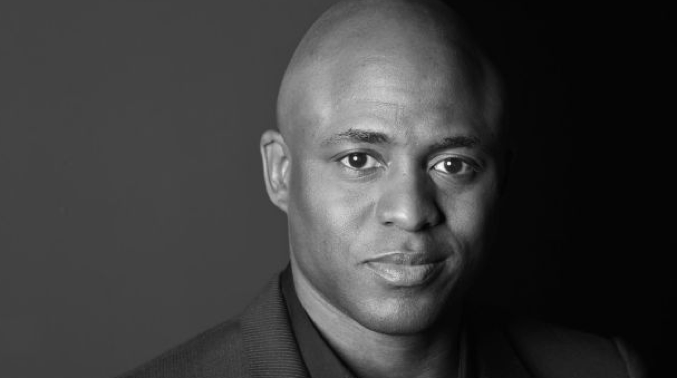Wayne Brady, best known for his Emmy-winning TV work, is also at home onstage: He appeared on Broadway in Kinky Boots and is currently playing Aaron Burr in the Chicago cast of Hamilton though April 9.
What’s your first theatrical memory?
I think I was in first or second grade and was part of a school play or pageant. I saw James Brown on TV, and for my solo I decided to do a shimmy into one of the James Brown jazz splits. And I felt so cool onstage. That’s the feeling that I wanted to duplicate later in my life. My first time onstage doing a play was Dark of the Moon in high school my junior year. I walked onstage, got a bit of applause—I was playing a funny character named Uncle Smelicue Jed—and I thought, “Oh, this is what I want to do.”
Tell me about your first experience seeing Hamilton as an audience member.
My initial reaction was: What was that all-encompassing electricity that shot through my body? Like when I saw In the Heights but times 10. I was so thrilled. And then a feeling of: I want to be onstage right now. It’s not jealousy—it’s like stage envy. You want to be in that thing doing that right then and there. That’s what I felt.
You’re known for being an off-the-cuff guy. What do you bring to Hamilton, a show many viewers come to with certain expectations and a familiarity with the score?
I get asked that question, and with all due respect, I’m not an off-the-cuff guy. I’m an actor who happens to do improvisation, but that doesn’t mean that I’m going to knock on the door of the director going, “Hey, I got stuff to add.” No, I do the script. What I bring because I happen to be someone who is open to improvisation is, I’m ready in case anything were to ever go wrong. But knock on wood, with a machine as finely tuned as this is, and a story amazing as this is, you don’t have to make anything up.
Did you brush up on history to prepare for the role?
I read up a lot on Aaron Burr, simply so I can have a point of view on the relationship between him and Hamilton. I learned a lot of things that I’m able to use in the show. Even if the audience doesn’t see it, there are things that I feel that I know—how he felt about Hamilton, about Theodosia, his daughter, about Washington. Burr was actually a well-respected soldier and never got a promotion by Washington, so nightly I use the fact that once he gets passed over, he has a thing against Washington—a very slight, subtle, bubbling thing.
Do you view him as a hero or a villain?
Neither; he’s a man. He’s a man who wanted to do right by himself, wanted to find his way in the world and thought he could do that by fighting in this war and rising to prominence, the same way Hamilton did—it was just a different side of the coin. It’s a tragedy that they both ended up on the dueling grounds as they did.
What experience or memory from this show will stay with you?
My opening night—being so nervous about not only being able to carry the torch but being able to make it my own, and wanting to make my daughter proud of me. I will forever remember that day.
You had a fabulous outfit in Kinky Boots: heels, false eyelashes, sequins. Do you ever miss Lola?
No, I loved being Lola, and I look forward to playing Lola again at some other point, but I’m glad that I’ve had a year now to rest my feet and to not have as much makeup on my face. I love me some Lola.
Other than walking in heels, what did you learn from her?
I loved what I was able to bring to Lola and what Lola was able to bring to me. I loved the empathy that Lola has for everyone around her. And I love the fact that Simon [her alter ego] was a complex man who loves to become this woman and bring light to other people. That’s how he felt comfortable in his skin. I can completely empathize with that: wanting to be one kind of person but using another skin to bring joy to others.
If you weren’t a performer, what would you be?
I would probably be a teacher. One of my teachers, Karen Rugerio, set me on the path to this wonderful career that has let me travel the world, and I’ll always be in debt to her. I’m a fan of teachers. I probably would be closer to a Robin Williams type of teacher, who would love to entertain the class, make up stories, make up songs, build castles out of cardboard boxes, and help them use their imagination.
A version of this piece appears in American Theatre’s April ’17 issue.


